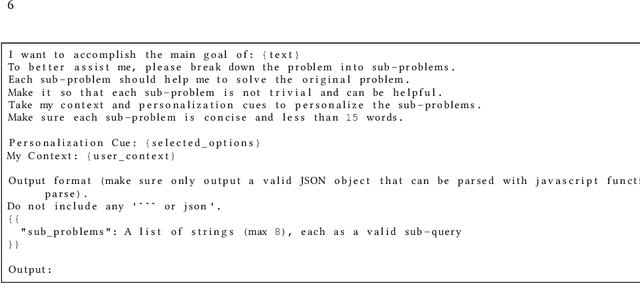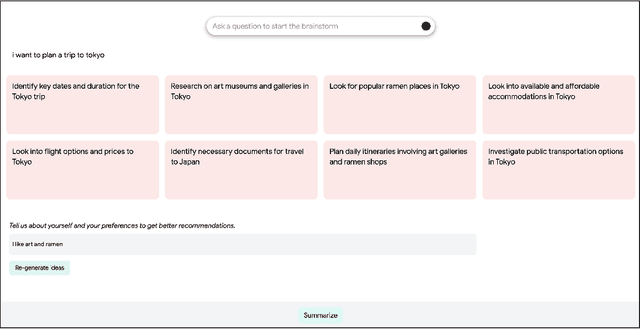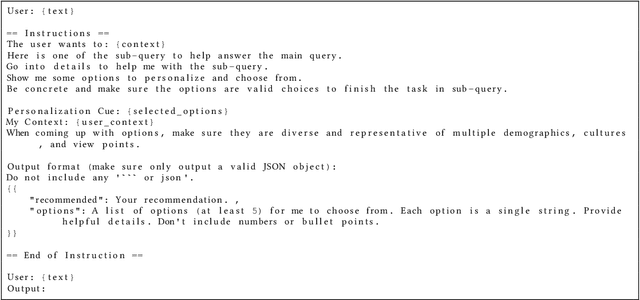Ariel Liu
Beyond ChatBots: ExploreLLM for Structured Thoughts and Personalized Model Responses
Dec 01, 2023



Abstract:Large language model (LLM) powered chatbots are primarily text-based today, and impose a large interactional cognitive load, especially for exploratory or sensemaking tasks such as planning a trip or learning about a new city. Because the interaction is textual, users have little scaffolding in the way of structure, informational "scent", or ability to specify high-level preferences or goals. We introduce ExploreLLM that allows users to structure thoughts, help explore different options, navigate through the choices and recommendations, and to more easily steer models to generate more personalized responses. We conduct a user study and show that users find it helpful to use ExploreLLM for exploratory or planning tasks, because it provides a useful schema-like structure to the task, and guides users in planning. The study also suggests that users can more easily personalize responses with high-level preferences with ExploreLLM. Together, ExploreLLM points to a future where users interact with LLMs beyond the form of chatbots, and instead designed to support complex user tasks with a tighter integration between natural language and graphical user interfaces.
Challenges in Supporting Exploratory Search through Voice Assistants
Mar 06, 2020
Abstract:Voice assistants have been successfully adopted for simple, routine tasks, such as asking for the weather or setting an alarm. However, as people get more familiar with voice assistants, they may increase their expectations for more complex tasks, such as exploratory search-- e.g., "What should I do when I visit Paris with kids? Oh, and ideally not too expensive." Compared to simple search tasks such as "How tall is the Eiffel Tower?", which can be answered with a single-shot answer, the response to exploratory search is more nuanced, especially through voice-based assistants. In this paper, we outline four challenges in designing voice assistants that can better support exploratory search: addressing situationally induced impairments; working with mixed-modal interactions; designing for diverse populations; and meeting users' expectations and gaining their trust. Addressing these challenges is important for developing more "intelligent" voice-based personal assistants.
 Add to Chrome
Add to Chrome Add to Firefox
Add to Firefox Add to Edge
Add to Edge